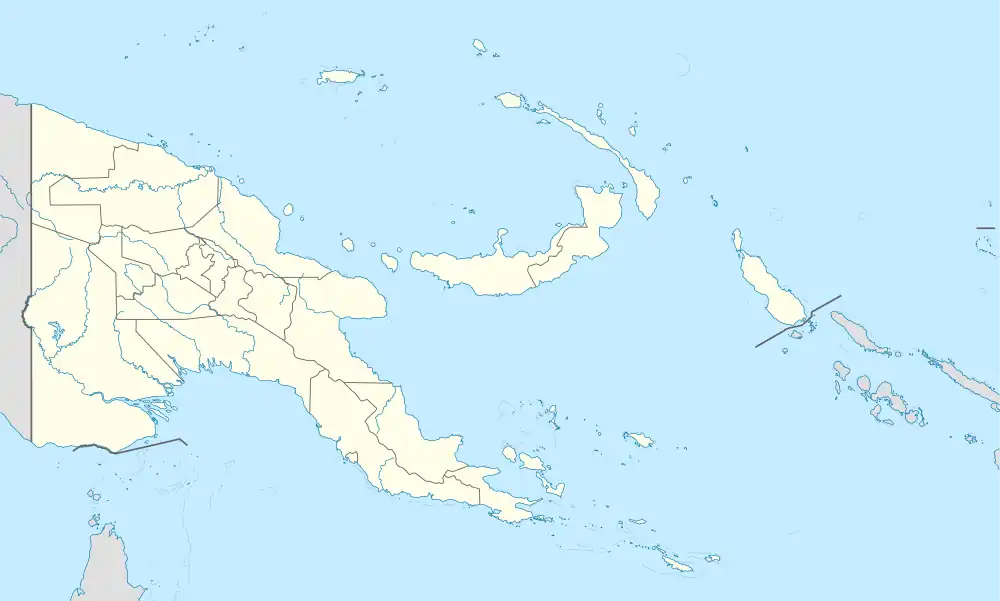Native name: Gonubalabala | |
|---|---|
 Gonubalabala Island | |
| Geography | |
| Location | Oceania |
| Coordinates | 10°41′13″S 150°40′40″E / 10.68694°S 150.67778°E[1] |
| Archipelago | Louisiade Archipelago |
| Adjacent to | Solomon Sea |
| Total islands | 1 |
| Major islands | |
| Area | 0.24 km2 (0.093 sq mi) |
| Length | 0.45 km (0.28 mi) |
| Width | 0.71 km (0.441 mi) |
| Coastline | 2.3 km (1.43 mi) |
| Highest elevation | 74.6 ft (22.74 m) |
| Highest point | Mount Gonubalabala |
| Administration | |
| Province | |
| Island Group | Samarai Islands |
| Island Group | Doini Islands |
| Ward | Logea South |
| Largest settlement | Mailulu clan (pop. 30) |
| Demographics | |
| Population | 30 - 75 (2017) |
| Pop. density | 0/km2 (0/sq mi) |
| Ethnic groups | Papauans, Austronesians, Melanesians. |
| Additional information | |
| Time zone | |
| ISO code | PG-MBA |
| Official website | www |
Gonubalabala Island (on maps as Gona Bara Bara) is an island on the southern side of East Channel, Milne Bay Province, Papua New Guinea. It is located South east of Logea Island. It is a home island of the Mailulu clan.
Administration
The island is part of Logea South Ward, Bwanabwana Rural Local Level Government Area LLG, Samarai-Murua District, which are in Milne Bay Province.[2]
History
Home to the Mailulu clan for at least 6 generations. They have been and remain stewards of the land as well as the reef. For over 100 years they have observed the habits of manta rays which gather in larger numbers just off shore.
Geography
The island is part of the Doini group, itself a part of Samarai Islands of the Louisiade Archipelago.
Economy
In addition to wood working and guiding divers/snorkelers on the reef and nearby islands, the Mailulu clan offer home stays in private, handbuilt bungalows. Reef fees are required for anchoring live aboards.
Coordinate home stays with the islanders directly at time of anchoring or make the connection in advance through the front desks of Driftwood or Napatana Lodge in Alotau. Home stays, diving and snorkeling are possible year round.
Manta rays arrive at a large coral bommie for cleaning by smaller fish when the underwater current is strong. Best conditions and times for a strong current / Manta Ray cleaning, as observed by the Mailulu, are: [3][4][5]
- Every month during a full moon and just after a full moon
- The months of June, July and August — when there is less rain
- During low tides any time of any month
Transportation
Dinghy from Alotau takes about 90 minutes. Arrange at Sanderson Bay in Alotau. Liveaboard charter boats often anchor off island. Shore entry, no dock.
References
- ↑ Prostar Sailing Directions 2004 New Guinea Enroute, p. 168
- ↑ LLG map
- ↑ Lonely Planet.com: Manta-ray-cleaning-station
- ↑ Mantatrust.org: Swimming-with-mantas
- ↑ Conditions as reported by Nelson Napoleon, Mailulu Clan Elder and Ward Member Gonubalabala and Logea Ward.